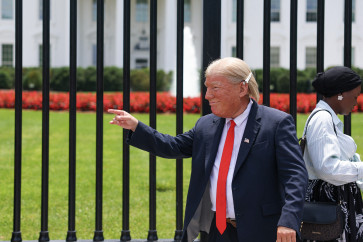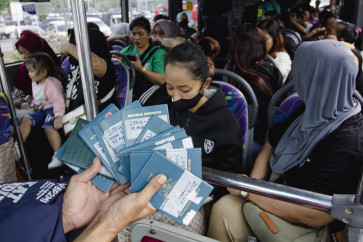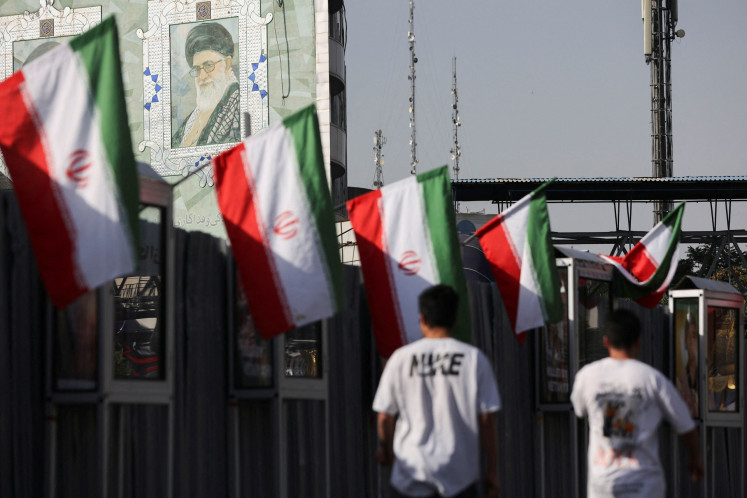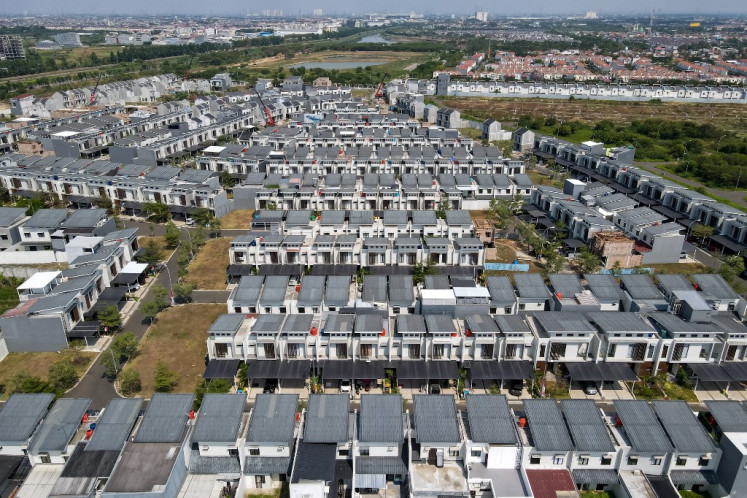Popular Reads
Top Results
Can't find what you're looking for?
View all search resultsPopular Reads
Top Results
Can't find what you're looking for?
View all search resultsGanesha launches app to cater to young customers
Private lender Bank Ganesha has taken a step forward in its investment in technological development with the launch of a mobile banking app designed to adjust its banking services for the millennial generation
Change text size
Gift Premium Articles
to Anyone

P
rivate lender Bank Ganesha has taken a step forward in its investment in technological development with the launch of a mobile banking app designed to adjust its banking services for the millennial generation.
It has used part of its annual capital expenditure of Rp 25 billion (US$1.83 million) to develop a mobile app called “BANGGA” that allows people to conduct mobile-banking transactions, such as bank transfers, phone credit top-ups and opening time deposits.
“BANGGA has four important features: it is secure, integrated with other platforms like e-wallets, able to engage people with its features and it is seamless,” Bank Ganesha president director Surjawaty Tatang said during the launch recently.
Surjawaty said the lender aimed to persuade all its existing customers, totaling 30,000 to 40,000 people, to use its new mobile app.
In order to provide better services through its app, Bank Ganesha teamed up with financial technology companies, namely e-wallet provider DOKU, peer-to-peer lending marketplace Investree, switching company Jalin Pembayaran Nusantara and G-tech group, which has diversified business sectors.
DOKU CEO Thong Sennelius said the company supported Bank Ganesha in terms of technology for its e-money service called “Gmoney”.
“As a bank in the BUKU II category, Bank Ganesha is not allowed to have e-money without a license. Thus, the bank collaborated with DOKU in terms of licenses and technology,” Thong said.
Soon, Bank Ganesha plans to extend its services to sell government debt papers [SBN] online through the Investree platform.
“All this time we have partnered with Trimegah to sell SBN, sukuk [Islamic bonds], however this was not through the online channel. Through partnership with Investree, we can sell those things in the retail market as well,” she said.
Bank Ganesha’s moves to invest more in digital technology was due to the fact that Indonesia, a country with a population of around 260 million, will have a vast number of millennials for years to come.
It is hoped the adjustment of its services to cater to digitally savvy customers will boost the company’s business growth in the future.
In 2017, Bank Ganesha posted Rp 51.1 billion in net profits, an increase of 30 percent year-on-year (yoy). The surge in net profits was supported by the growth in retail and commercial loans, as well as efficiency measures.
The lender’s operational income rose by 38 percent yoy to Rp 247.8 billion, driven by the increase in net interest income by 32 percent yoy to Rp 211.6 billion and a 91 percent jump in fee-based income to Rp 36.2 billion.
As of December, the bank had disbursed Rp 2.9 trillion in total loans, an increase of 20 percent from 2016. Its total assets climbed by 8 percent yoy to Rp 4.58 trillion.
In 2018, Bank Ganesha expects loan growth of between 10 and 12 percent, similar to the target set by the Financial Services Authority (OJK).
The bank’s biggest loan portfolio of about 70 percent was in the commercial segment, followed by small and medium enterprises with 15 percent, the remainder was in the consumer segment.
Its gross non-performing loan (NPL) ratio improved to 0.81 percent by the end of 2017, from 1.32 percent in the previous year. The NPL net ratio also declined to 0.20 percent from 0.80 percent.









